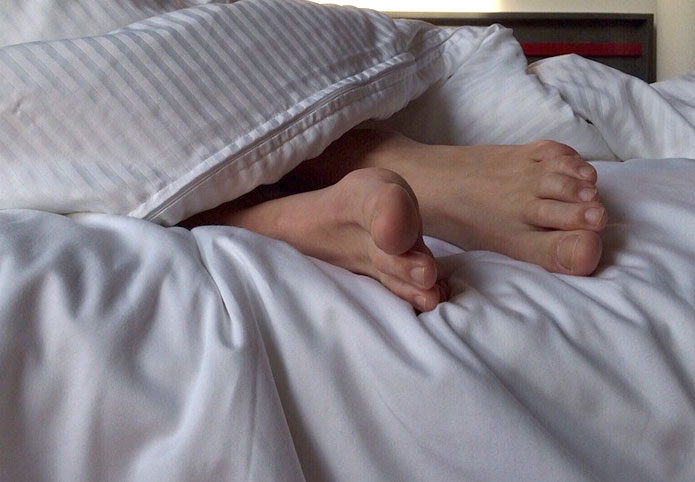Sleep during pregnancy is essential for you to function well. You will find you need more sleep as growing a baby can be exhausting.
Getting enough sleep enables you to perform at your best during waking hours. Lack of sleep can make everyday activities seem difficult, making it harder to concentrate, and increasing the chances of making mistakes.
How much sleep is enough?
Sleep needs differ for everyone, but most people perform best with eight hours of sleep a day. Listen to your body and, if possible, nap during the day.
The feeling of overwhelming tiredness usually settles after the first trimester.
In the later stage of pregnancy you may have trouble getting comfortable. This is due to your body changing shape and the pressure your developing baby places on organs, nerves and ligaments.
Other factors that influence the quality of sleep during pregnancy can include waking at night to go to the toilet. Initially this is due to the increase in fluid volume, then in later pregnancy, due to the pressure the baby exerts on the bladder. It might be nature’s way of preparing us for night feeds!
Sleep strategies
- Give sleep higher priority now that you are pregnant. Decide how much sleep you need to function well and plan your day around achieving this.
- Set and maintain a regular bed time to help stabilise your body clock. Constant changes in bedtime and sleep duration affect your ability to fall asleep and the quality of sleep.
- If your sleep at night is regularly interrupted by toilet visits or other children, plan a regular nap during the day to make up for it. A power nap can do wonders, even if it is only 10 to 15 minutes. However, if possible, nap for no longer than 30 to 45 minutes and no later than 4.00 pm. This way your night time sleep will not be affected and you won’t wake up feeling too drowsy.
Get comfortable
It is hard to fall asleep if you can’t get comfortable. In late pregnancy, sleeping on your left side is often more comfortable. This position can reduce back ache and improves blood flow to your baby.
- Use pillows as supports to wedge behind your back, between your knees and under your belly.
- Pay attention to your body temperature. Your metabolism is higher during pregnancy, this will make you feel warmer so you may not need as much clothing or bedding, even in winter.
Minimise nausea
Nausea associated with morning sickness during pregnancy can wake you from sleep in the morning or keep you awake at night.
- Hunger can trigger nausea so make sure you have a snack before bed if you find you are nauseous during the night
- If nausea is a problem when you are trying to sleep, keep some dry crackers close to your bed for a snack. Even if you really don’t feel like eating they can help settle your stomach.
- Morning sickness can sometimes be relieved by eating some dry crackers before you get out of bed in the morning.
Reduce heartburn
- Heartburn or reflux is due to the pressure of your expanding uterus on your stomach. Another contributing factor is the higher level of the hormone progesterone that can cause relaxation of the sphincter that sits at the top of your stomach, this allows the gastric juices to flow back up the food tube.
- Eating smaller portions more frequently may help.
The Raising Children Network has more information on diet in pregnancy.
Pregnancy health issues such as gestational diabetes, pre-eclampsia (high blood pressure), and oedema (fluid retention) can affect your sleep.
Having a healthy weight will also reduce your chance of developing some of these conditions.
Want to know more?
Women and Newborn Health Service – Diabetes Service Resources
The Raising Children Network – Healthy pregnancy for women who are overweight







